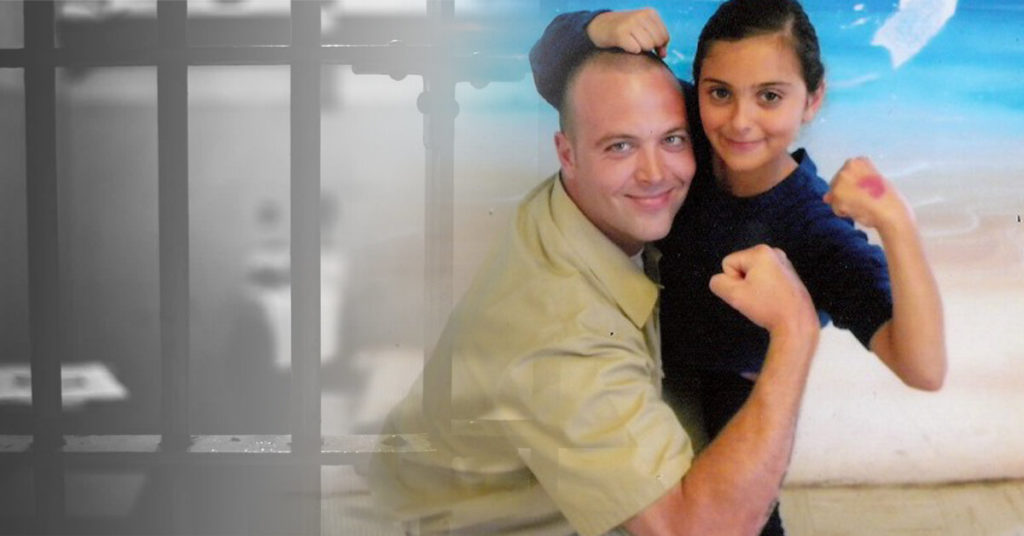
Though a lot of us here in California look back on the Prop 215 era fondly, there is a common misconception that any of us who participated in the supply side of it was somehow protected by law as long as we adhered to the blurry set of guidelines that loosely bound that market.
In August of 2013, the Deputy Attorney General of the United States under former President Barack Obama James Cole drafted a missive to all state Attorneys General telling them, in essence, that if their state had passed any sort of medical marijuana laws, the federal government would not be expending resources in pursuing cannabis crimes in those states. This was what is now commonly referred to as The Cole Memo, and it has been reinstated every year since, though it has about as much teeth as a Tuscaloosa tweeker.
The Cole Memo set some people at ease, but California’s medical marijuana market was established in 1996 with the passage of Proposition 215 and bolstered in 2004 with Senate Bill 420, so there were several years where California’s legacy operators were truly in no-man’s-land, legally.
As we all know (some of us more than others), plenty of people got raided and plenty of people got locked up for their role in the world’s largest medical marijuana market because the cannabis plant was then, and still is now, a Schedule I substance at the federal level. So, whether you were in Cali’s MMJ market then, Cali’s rec market now, or any of the dozens of states with regulated medical and/or recreational marijuana markets these days, if the Feds start sniffing around your weed operation, the script can get flipped real quick.
That’s just what happened to a man named Luke Scarmazzo, a medical marijuana dispensary owner in Modesto, California in 2007-08.
THAT’S A (W)RAP
Luke Scarmazzo and his high school friend and football teammate Ricardo Montes founded a storefront medical marijuana dispensary in Modesto in 2005 called the California Healthcare Collective. This was the city’s first dispensary and one of literally hundreds, if not thousands, of such shops doing business every day, all day, up and down the state of California in those relatively early days of the MMJ scene.
In the quasi-legal landscape that Prop 215 thrived in, Scarmazzo was doing all he could to abide by what rules did exist but at the end of the day, it was a business, and business was good at CHC.
So good, in fact, that the humble little pot shop had banked somewhere around nine million bucks in its relatively short lifetime. As the self-made co-owners, Scarmazzo and Montes were reaping the financial benefits of the booming biz. As 20-something-year-olds suddenly showered with more cash than they had ever seen in their lives, temptation was everywhere.
On February 24th, 2007, Luke dropped his first YouTube video, a professionally-produced rap video featuring Scarmazzo himself spitting bars under the name Kraz. The video features many of the same background props you’d find in countless hip hop vids – cash, cars, women, weed, and of course, some firearms. Any of that on its own could raise eyebrows of local law enforcement if they were tipped off to the video, but it was the closeup shot of “Kraz” flipping off the camera and declaring “FUCK THE FEDS!” that made the clip go viral for all the wrong reasons.
Before the end of the year, federal agents were prowling around the pot shop, part of a joint task force consisting of the DEA, the Modesto Police Department, the Stanislaus Drug Enforcement Agency, and the Central Valley High Intensity Drug Task Force, all working in tandem trying to bait the businessmen into incriminating themselves enough to justify what was to come next. After several failed attempts to send unqualified “patients” into the medical marijuana collective, one such attempt finally hit paydirt, quite literally kicking down the door for federal law enforcement to roll up the whole operation.
In 2008, Scarmazzo and Montes found themselves on trial in federal court where none of California’s established cannabis law (Prop215/SB420) could be brought as evidence in their defense, as it still ran counter to federal law. Thus, they were treated no differently than had they been selling millions of dollars of weed out of a backpack, car truck, or apartment building – all a far cry from the very public-facing and community-oriented operation they were running at CHC.
Mandatory minimum sentencing laws at the time had each man facing at least 20 years in prison for non-violent federal crimes that the state and their hometown had sanctioned. So, they fought back. Even when offered plea deals that would cut the potential time behind bars in half, they refused and took their near-identical cases to trial where they were both found guilty.
The men were in a state of shock and disbelief as their fate was read to them. A lot of us are raised to believe that there is some ultimate form of justice that will step in to right obvious wrongs, but when Scarmazzo’s own fateful rap video was replayed in the courtroom, it became clear that the 1st Quarter full-court press that the Feds put on these guys was way more personal than practical.
For Montes, it was his first offense on an otherwise impeccable record – sentenced to twenty years.
Scarmazzo, who had a prior offense, was convicted on one count of conducting a continuing criminal enterprise and two counts of manufacture/possession of marijuana with intent to distribute and aiding and abetting. He was sentenced to 21 years, 10 months.
COMMON GOALS
While serving his sentence at the Federal Correctional Institute at Lompoc, Scarmazzo crossed paths with a fellow inmate by the name of Weldon Angelos who had been at the prison since 2004, also serving a severely disproportionate amount of time for a non-violent cannabis offense.
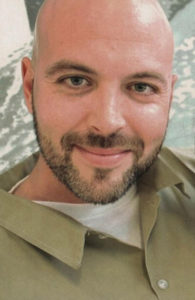
FREE LUKE SCARMAZZO
(photo courtesy of the Scarmazzo family)
The two immediately formed a bond, spending a lot of their time analyzing their cases in the law library hoping to find a legit path back to freedom. Angelos, who was granted clemency on a 55-year sentence and freed in 2016, remembers the frustration that his friend Luke felt when he lost his first appeal.
Together, they immediately got to work on filing a “2255”, a habeas corpus motion in which a prisoner can move to have their conviction totally vacated based on what they feel to be excessive sentencing for the charged crime(s). Scarmazzo also made the argument that his legal counsel had neglected to properly advise him on the risks of passing on the plea deal and taking his case to trial against the federal government.
That motion was denied when the federal prosecutor, probably not a fan of Kraz’s music career, misled the court by claiming that Scarmazzo was never offered a plea deal, and that the mandatory minimum sentencing that he received should stand.
Angelos, Scarmazzo, and Montes shifted gears once again, now focused on drafting compelling clemency petitions, hoping that Angelos’ contacts in the political and entertainment arenas may help shine some light on their efforts.
After a transfer to FCI Mendota, Angelos and Scarmazzo formed a group that they dubbed the Clemency Clinic where they and other interested inmates could convene to discuss the legal precedent surrounding their cases and their plans to earn their freedom. Angelos had already filed his own paperwork and was waiting for a response, so he keyed in on Scarmazzo and Montes’ cases, determined to find mercy for his friends.
Because Montes had no prior run-ins with the law leading up to his own conviction, and because he kept his nose clean once he was locked up, the three friends figured that he had the best shot of earning his release. Scarmazzo had the one prior on his record and had a handful of “shots” – minor infractions – on his prison file, but still, his time did not fit his alleged “crime” so they remained confident that he too would avoid serving his entire bid.
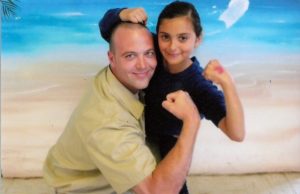
Luke Scarmazzo with his daughter Jasmine
(photo courtesy of the Scarmazzo family)
As it turned out, Angelos had his name drawn first – he was going home. Scarmazzo, Montes, and the other friends he had made inside were excited for him, as well as for themselves as they knew how effective he’d be at sparking advocacy for their stories once he was freed…and he has been.
In the waning days of the Obama presidency, on January 17th of 2017, Montes got the news he had been waiting over a decade to hear – his clemency had been granted and the remainder of his sentence was being vacated.
One can only imagine the roller-coaster of emotion that Scarmazzo experienced, seeing his high school friend pack his shit and bounce while waiting for his own good news that never came – his petition had been denied weeks earlier, on January 5th, but it took that long for the decision to reach him.
In his petition, Scarmazzo made a direct appeal to the powers that be that even if they deny his request, they should grant clemency to his co-defendant and that’s just how it played out.
“He took that really hard,” says Angelos who still talks to Scarmazzo weekly, adding, “he was just really sick and heartbroken. He was just lost, man.”
With a new presidential administration entering the White House in 2017, though, came another attempt at clemency, not just for Luke Scarmazzo but for anyone currently serving time in prison for crimes that would not exist or be charged under today’s laws.
This is Weldon Angelos’ mission, he calls it Mission[GREEN].
Mission[GREEN]
Tapping into his vast and varied sphere of influence, Angelos drafted a letter this past February, addressed to President Trump, and endorsed by everyone from U.S. State Senators, to hip hop recording artists, to A-list actors, requesting that he consider commuting ALL cannabis offender sentences, particularly for people like Luke who were following state law at the time of their so-called crimes but were still prosecuted federally and people who would never be charged today due to cannabis-friendly changes to state laws like here in Cali.
President Trump could right this wrong before lunch today if he chose to.
It may not come to that, however. Scarmazzo still seeks one more day in court, despite the vindictiveness that he has faced fighting his case so far.
Today he is seeking what is called “compassionate release”, a rarely utilized provision that used to be reserved for the elderly and/or terminally ill. Through a criminal justice reform measure that Angelos helped bring to reality called the First Step Act (FSA), compassionate release is now potentially available for a lot more inmates.
Now, the compassionate release provision is overseen and decided upon by a judge, rather than by the Bureau of Prisons which has a severe conflict of interests in the matter – let’s face it, empty cells mean funding cuts and furloughed staff.
Also, crucial to Scarmazzo’s case, the criteria to qualify for compassionate release changed with the passage of the FSA. Now, virtually any compelling or extraordinary circumstance is enough reason for a judge to grant the provision and reduce the inmate’s sentence.
So, advocates for Luke Scarmazzo are now arguing in court that the fact that Luke would no longer catch the same charges under current California cannabis laws. They rightfully argue that the Cole Memo is essentially reinstated every year since it was introduced in 2014, offering a level of protection that Luke was denied.
A quick glance at Weedmaps shows over a dozen licensed dispensaries serving Modesto right now while Scarmazzo sits in prison for doing the same. Even if he did have the Feds press him these days, the sentencing would be much, much less harsh and the 12+ years he has already served would more than cover that.

Another valid point being made in Scarmazzo’s defense is that his business partner and co-defendant is out free on clemency, long before his sentence was satisfied. If we are a nation of equal justice, that principle is being challenged by this hypocrisy.
Finally, they are leaning heavily on the fact that in the COVID-19 era, cannabis businesses have been deemed “essential” and have been allowed to operate alongside banks, grocery stores, gas stations, and government agencies as other “legit” businesses have been forced to shut down.
Contrast this with the fact that at least 70% of federal prison inmates in the U.S. are testing positive for Coronavirus and compassionate release makes more sense than ever. Dealing with weed should definitely not carry a twenty-two-year sentence but it really shouldn’t carry the chance of the death penalty by way of a pandemic.
“For these reasons, and more, Luke should be released,” Angelos told us recently by phone. “He has served 12 years and that is beyond enough punishment.”
We absolutely agree.
At this point, advocates for Scarmazzo have filed the request for compassionate release. The state is due to reply any day now at which point the defense will file a reply brief leaving the final decision to the judge.
Much like he did in February, Angelos delivered a letter laying out the facts behind Luke’s request and endorsed by a federal former prosecutor and even a former candidate for President of the United States, Gary Johnson.
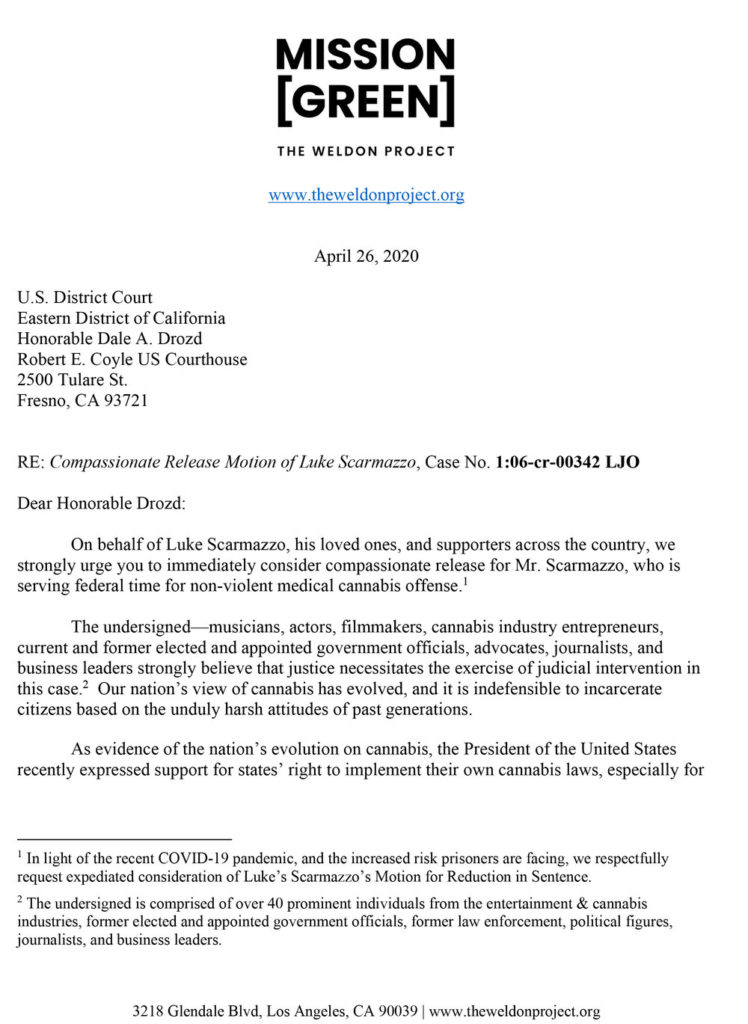
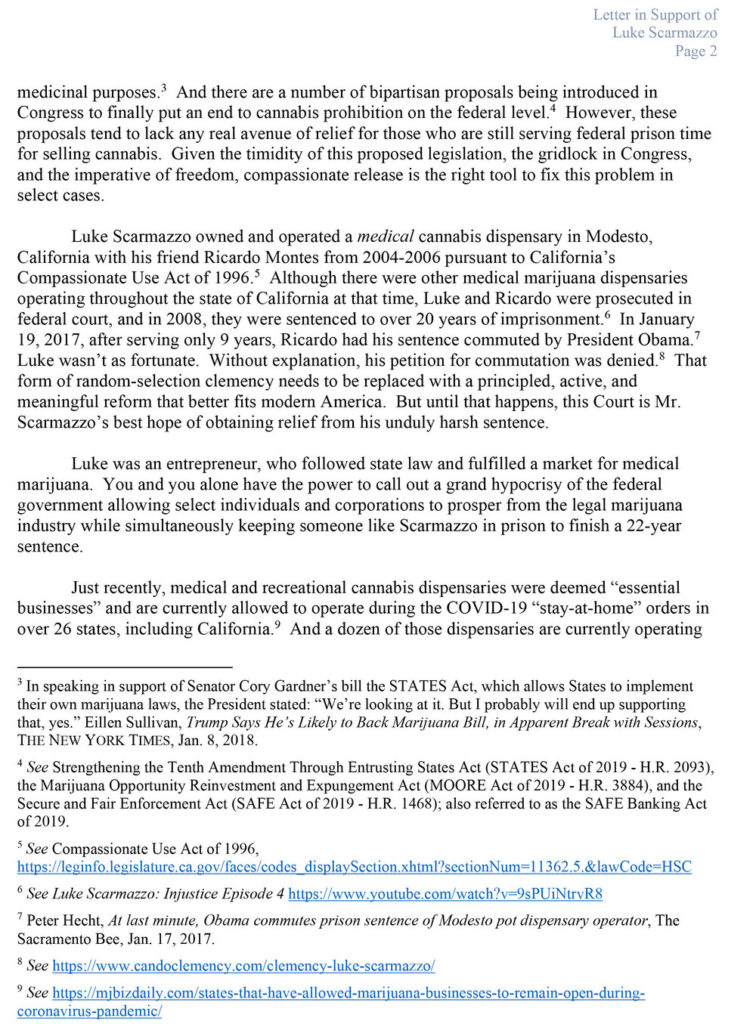
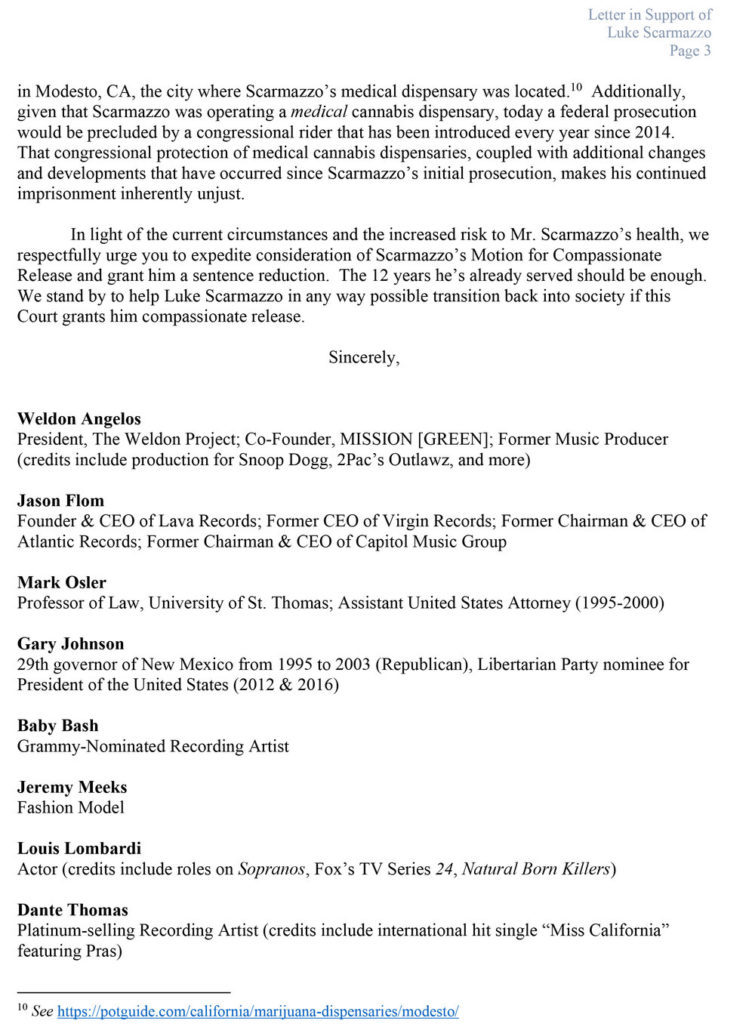
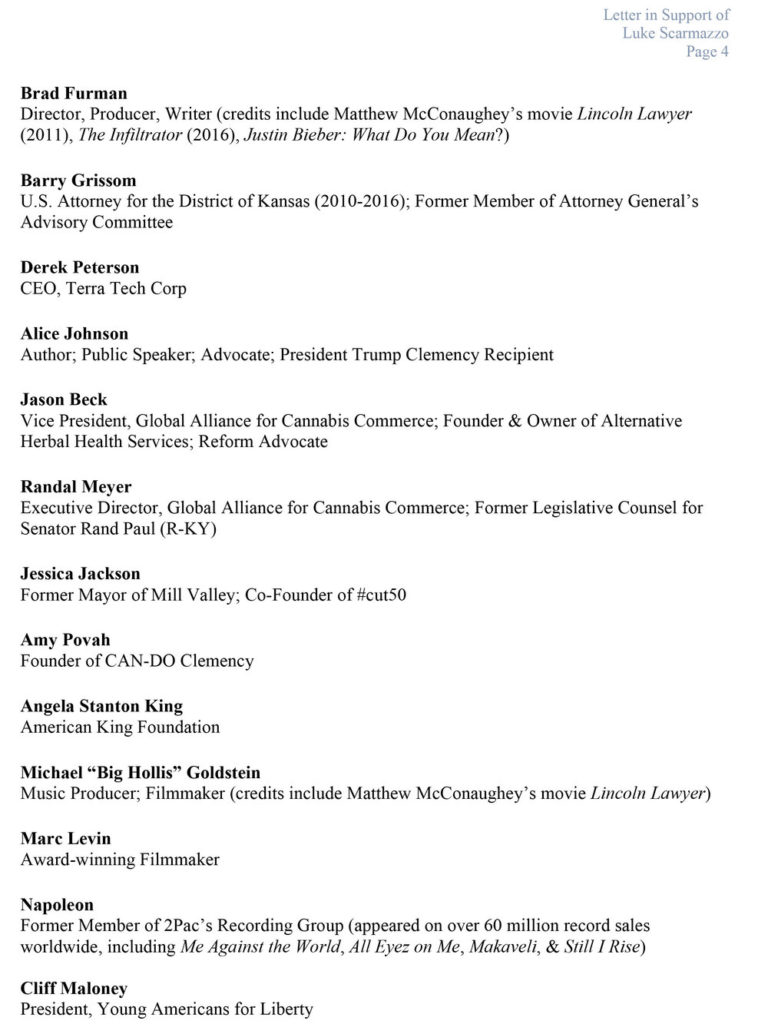
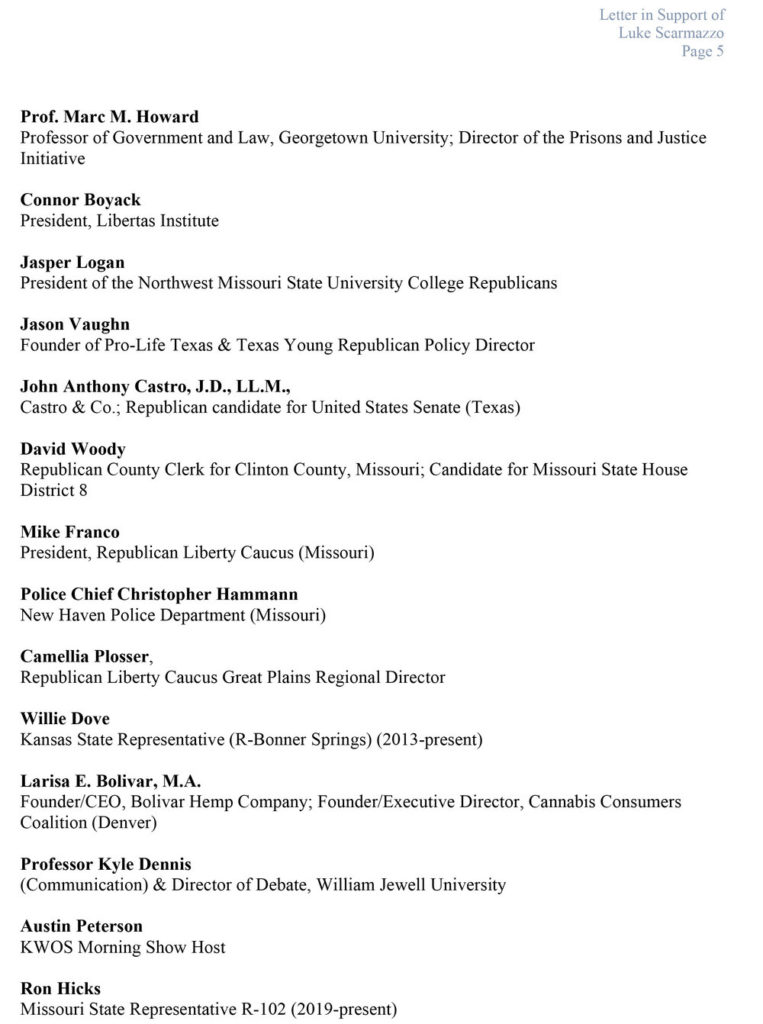
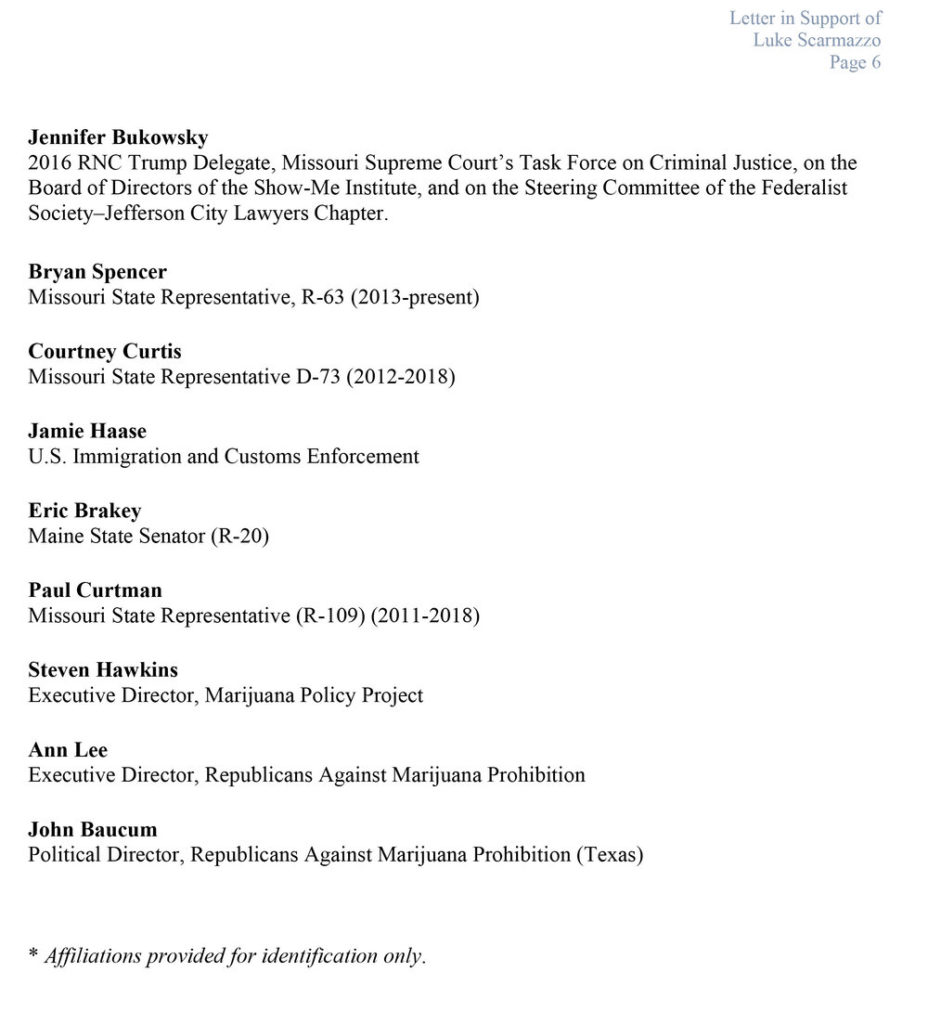
If for some reason the judge denies Scarmazzo his freedom once again, Angelos is prepared to revisit the nation’s capital to convince the president to do the right thing.
“I’ve been advocating for Luke since I was in prison with him,” says Angelos, “I bring up his case wherever I go. Whether I am on Snoop Dogg TV or if I’m at the White House, I bring him up every time.”
Here is a letter that Luke wrote to our friends at Parents 4 Pot:
Back when the marijuana industry was in its infancy it took tremendous courage to be involved. When we opened CHC, our marijuana dispensary, I never thought I could get 22 years in federal prison behind it; the consequence came right out of the shadows. Nevertheless, if our actions contributed to the freedoms experienced today–i.e. millions of American adults able to use marijuana without fear of retribution–then it was all worth it. But no matter how just the cause or unjust the imprisonment, it doesn’t make prison any easier. Oftentimes its lonely, stressful, and downright inhumane. These feelings are amplified during the holidays. That’s when my yearning for family and community are greatest. And it kills me to see how my absence affects my daughter. I’m supposed to be her protector and provider yet from behind these bars fulfilling those duties is next to impossible. The greatest casualties of the War on Drugs, by far, are the children.
I’ve been incarcerated since 2008, and from the beginning Mickey Martin and Parents 4 Pot have been there for me and my family. Mickey passed away earlier this year but his spirit lives on through the selfless work of the many volunteers and financial backers at P4P. During the most trying time of the year–when the haunting of prison is felt most–P4P helps fill the void by providing gifts, smiles, and Christmas cheer to so many struggling families. Their contributions to freedom, the marijuana movement, and most importantly the children, are beyond extraordinary and I cannot thank them enough for the work they do. Even though they’ve sought no recognition, I hope my words can give some semblance of their charitable deeds, the deep gratitude I hold for them, and the immeasurable joy they spread during the holiday season.
From a father in prison, thank you.
Strength & Love,
Luke Scarmazzo
Enough is enough. It’s way past time to free Luke Scarmazzo.
Clemency Now for Ricardo and Luke
To send money, books, mail, anything please go to:
Most Popular News Posts
- Will We Eventually Have Psilocybin Dispensaries… Should We?
- Compassion Never Left California Cannabis, In Fact it is Stronger Than Ever
- Trying to Appeal to Phantom ‘New Cannabis Users’ is Killing Marijuana Megabrands
- “They’ll Come Back with Their Cousins and Guns”: Racism in America’s Cannabis History and Why it Matters Today


